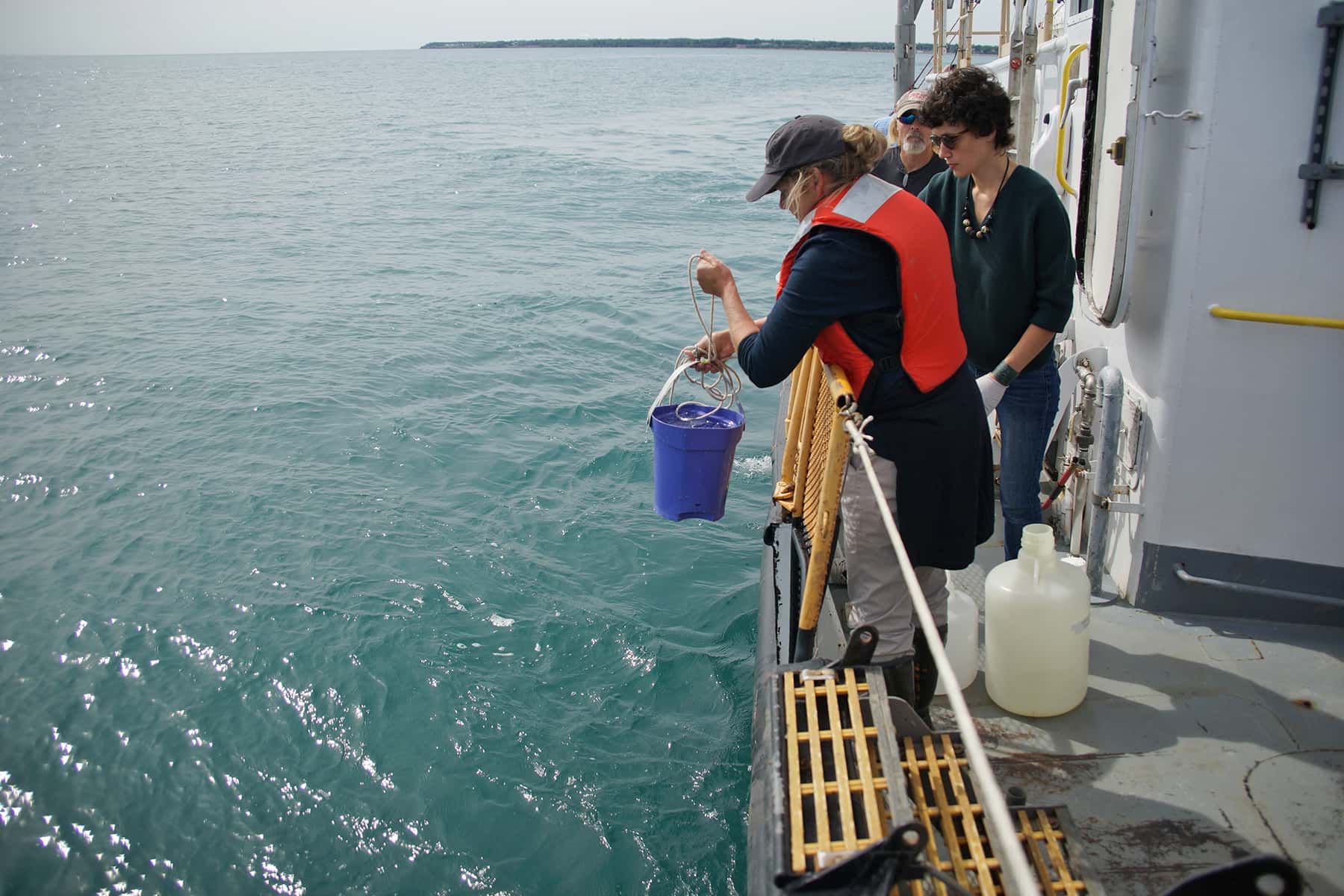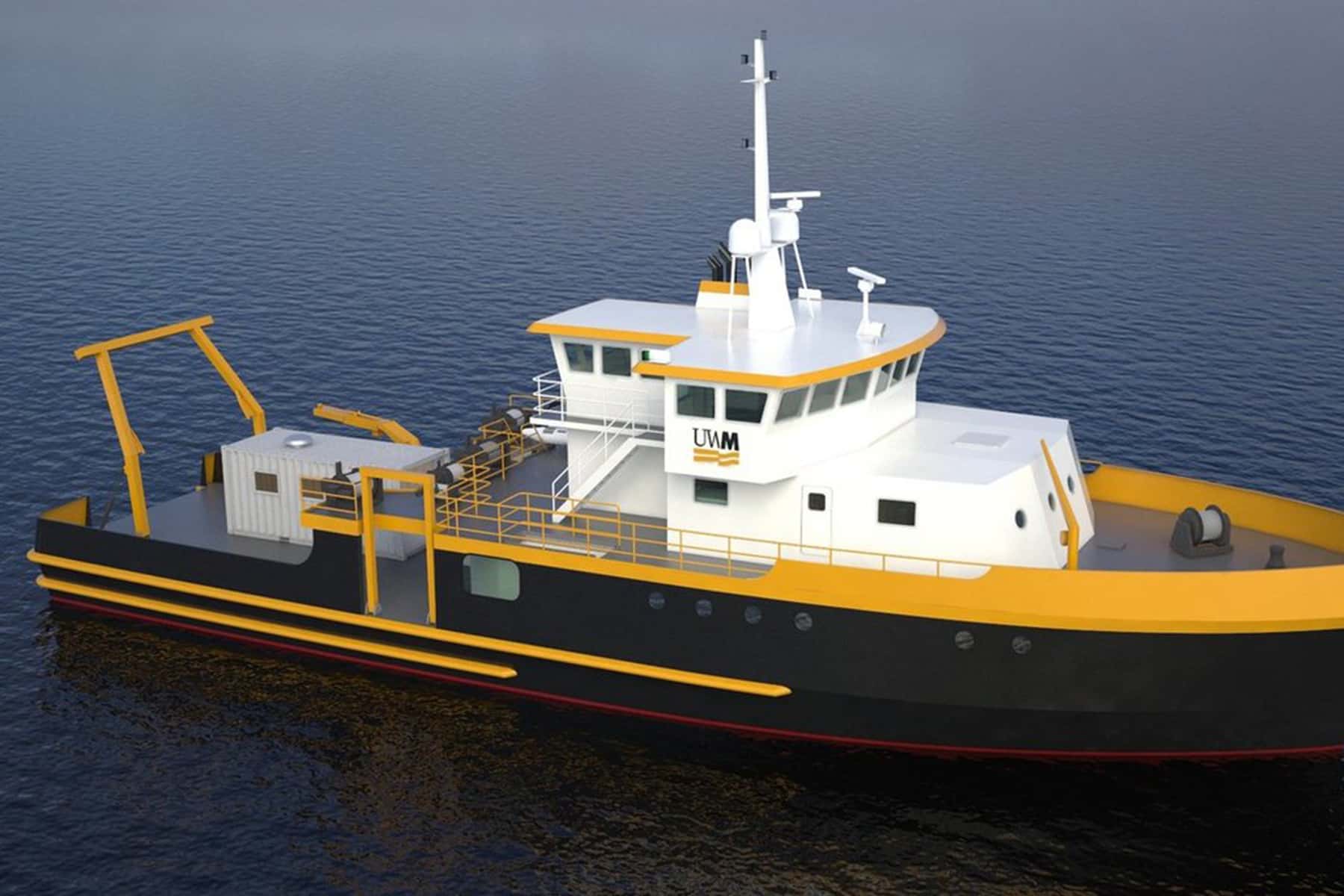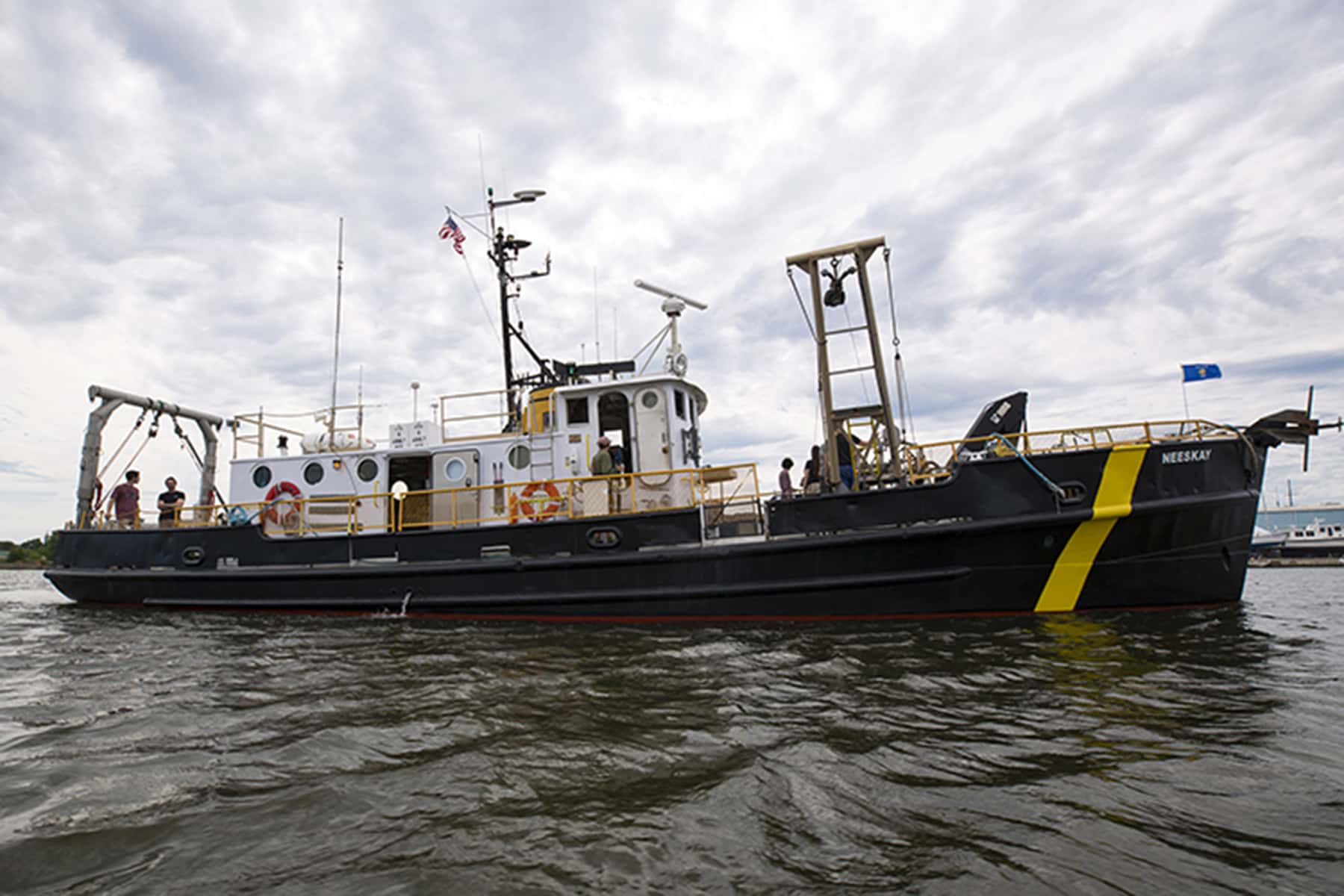
An anonymous donor has committed $10 million toward a new research vessel for the University of Wisconsin-Milwaukee’s School of Freshwater Sciences.
This amount equals the largest gifts ever received by UWM. In recognition of the donation, the vessel will be named the Research Vessel Maggi Sue.
“This gift will transform UWM’s efforts to protect the Great Lakes, our nation’s largest freshwater resource,” UWM Chancellor Mark Mone said. “More than 40 million people rely on the Great Lakes for clean drinking water, and this vessel will give us the technological platform necessary to advance our scientific understanding of these bodies of water to help us address our most pressing problems. I am profoundly grateful for our donor’s vision and willingness to lead this effort to steward our water.”
The university continues to raise funds for this $20 million project, which includes $15 million to construct the research vessel and $5 million to sustain its operation.
The Maggi Sue will be the most advanced research vessel on the Great Lakes and the first designed specifically for conducting sophisticated research on these bodies of water. It will replace the Neeskay, a converted Army T-boat that is more than 65 years old. The 71-foot Neeskay was purchased by UWM in 1970, nearly 50 years ago.
The Maggi Sue, measuring 120 feet in length, will possess onboard technology that will open new avenues of research and increase scientists’ ability to understand, explore and manage our freshwater resources. The vessel will feature sensors that collect real-time data, interchangeable lab pods that can be switched out depending on scientists’ needs, and a dynamic positioning system that allows the vessel to stay in one place despite the current, wind and waves.
The lab spaces will enable scientists to conduct experiments on the water. Classrooms aboard the vessel will allow groups of university students as well as K-12 students the opportunity to learn at sea. Unlike the Neeskay, the Maggi Sue will have sleeping accommodations for up to 18 people, allowing scientists and crew to remain on the water for longer periods of time to gather continuous readings without needing to return to shore.
“Science is the key to keeping our lakes healthy,” said Val Klump, dean of the School of Freshwater Sciences. “The Great Lakes are one of the world’s truly great natural resources. They sustain more than 1.5 million jobs and generate more than $62 billion in annual wages. They drive agriculture, energy production, manufacturing, real estate, shipping, tourism, recreation and quality of life. Yet, they are also biologically highly susceptible to natural and human impacts. Dead zones in Green Bay are growing larger, water levels in the lake are oscillating dramatically, and water quality is threatened by runoff and contaminants like pharmaceuticals. The Maggi Sue will give us the means to gain a clear and up-close picture of the challenges facing the Great Lakes and help us go further in generating solutions to these problems. I am so thankful to this donor for taking the lead role in seeing this vessel become a reality.”
UWM leads the Freshwater Collaborative of Wisconsin, a recently launched, statewide pilot program through which UW System campuses work together on a variety of freshwater challenges, while leveraging each location’s expertise within this field of research. The new vessel will be among the tools that researchers and students across the state of Wisconsin and beyond can use to advance the protection of this critically important natural resource.
© Photo
Lee Matz and the University of Wisconsin-Milwaukee School of Freshwater Sciences
















